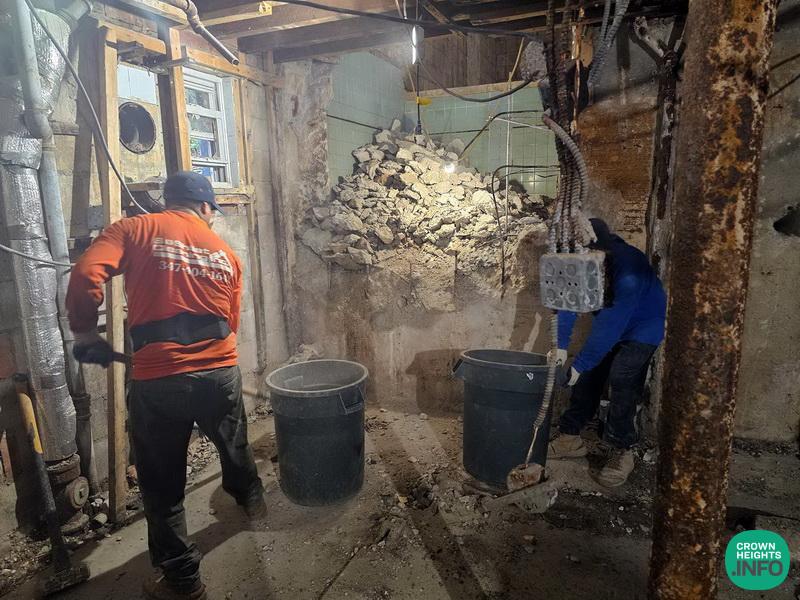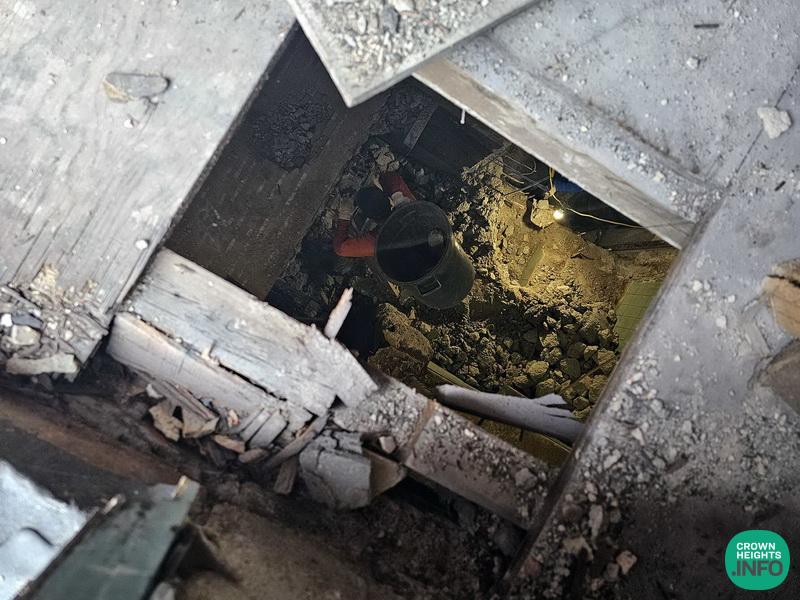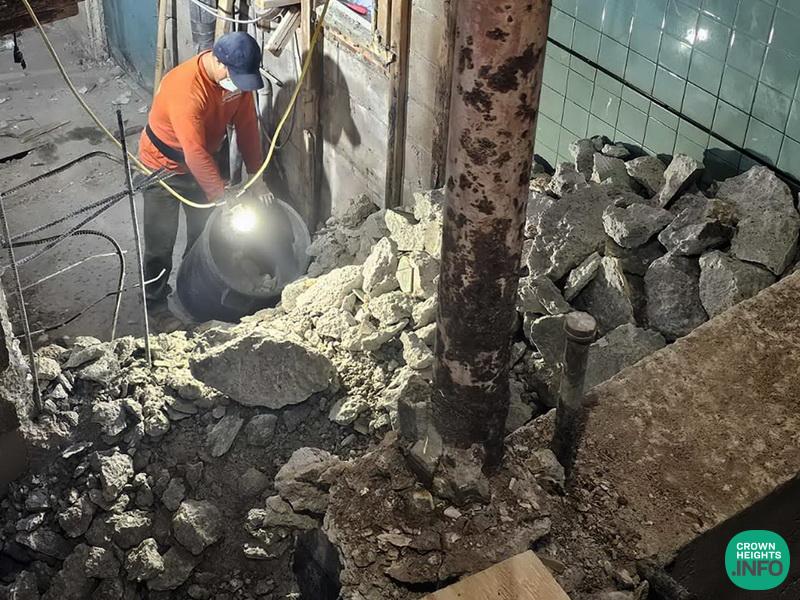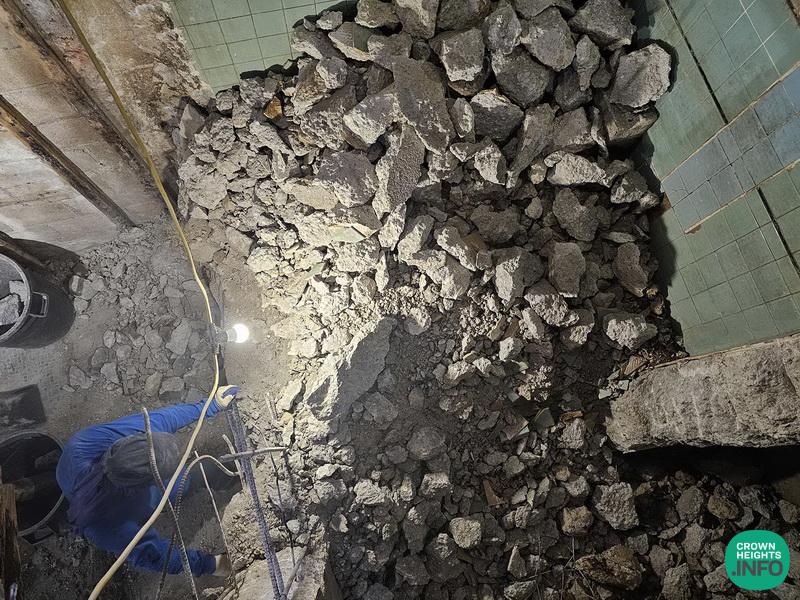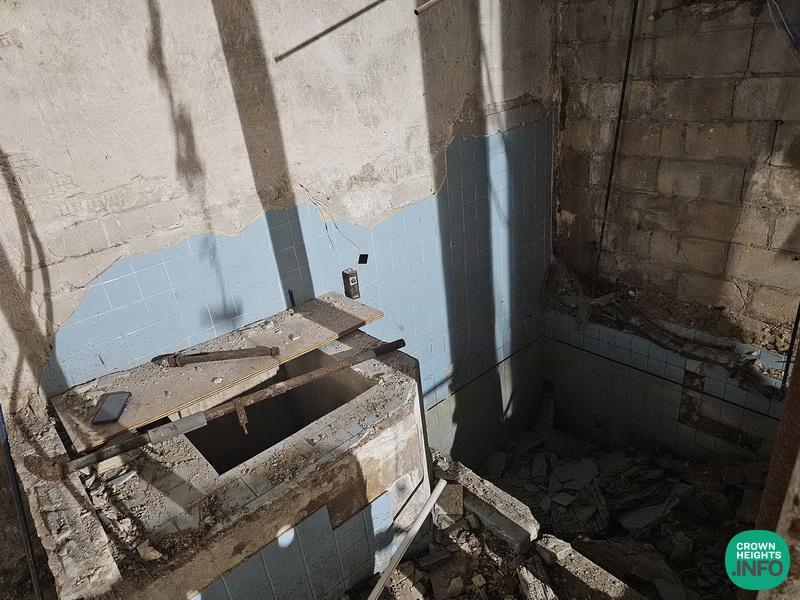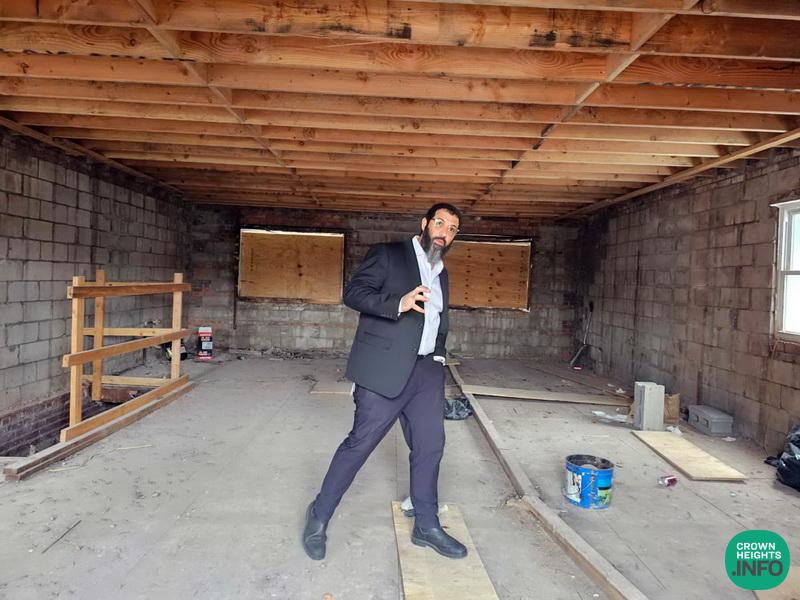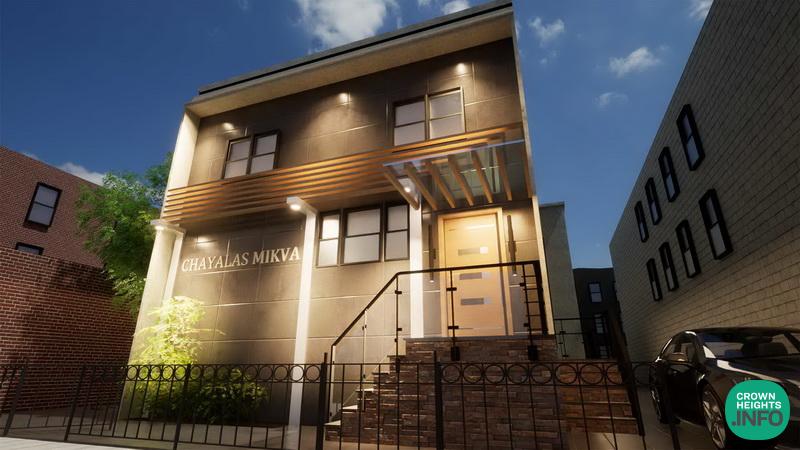
East Flatbush Crown to Soon Return
Just two decades ago, the idea of bustling Jewish life in East Flatbush was preposterous. Shuls were shuttered and Jewish institutions were being illegally sold. Yet there was one glimmer of hope: a free-standing mikvah, established by the local East Flatbush that distinguished Lubavitch rabbonim had maintained with mesirus nefesh until the last days of their lives.
“It was with pleasure that I received your report about your holy work to build a mikvah in your community,” the Rebbe wrote in a 1958 letter to the Rabbinical Board of East Flatbush. “May it be Hashem’s will that you be successful in actually starting construction and then bringing it to its true completion.”
Including a check to support the initiative, the Rebbe wrote that the mikvah should bring purity to the community and to the individual—the purity of body and soul, “one’s actions and outlooks.”
As the Rebbe noted, it was not going to be easy. With no mikvah in the community, sadly many did not keep the mitzvah and had no interest in supporting it. Those who did, struggled to survive financially. However, the Lubavitcher rabbonim of East Flatbush—particularly Rabbis Chaim Meir Bukiet and J.J. Hecht—would have nothing of it. Together with the local rabbonim, they organized fundraisers, and their rebbetzins went door to door to ask for support.
Four years after that first letter, the Rebbe wrote to the rabbinical board again, thanking them for their report “after not hearing about your sacred work for the purity of our holy nation.”
The result was a modern mikvah that served myriads of women for over four decades. Unlike any other mikvah, it had a concealed entrances and a parking lot, attracting women even from neighboring communities.
Even as the older generation moved out of the neighborhood, there was always a Jewish presence, and the shuls remained. Slowly, however, even the existing shuls fell into disrepair; while still open, they became increasingly decrepit.
The tenant of the community’s once-treasured mikvah eventually left, leaving the doors unlocked for anyone to enter. Squatters soon occupied the space, and the sacred site was vandalized. It seemed that this historical treasure would no longer be usable.
Today, as countless Jews have moved—and continue to move—into the flourishing neighborhood, the need for a dedicated mikvah building has once again become pressing. The loss of such a cherished institution would have been tragic.
Through many hurdles, over the past year the Rebbe’s wishes are once again becoming a reality: the free-standing mikvah is returning to life.
“Life is not about ourselves,” says Sholly Levy, the powerhouse behind the new mikvah. “It is about giving to others. It is about caring for other Jews, and there could be nothing greater than reestablishing a mikvah that the Rebbe wanted so much.”
To be named after his sister, who tragically passed away in her sleep at age 17, Chayala’s Mikvah will also include a women’s oasis where one can relax, grab a coffee, attend a class, or enjoy solitude with a book.
Standing in what will soon be a beautiful mikvah, pointing out the newly completed extension to the building, Sholly recalls that his sister was a lively and positive person who never complained about her challenges. “She found beauty in every moment,” he says.
Over the past seven years, together with his wife who Rivky, Rabbi Asher Webb and others, he has faced many obstacles. But as the project is in its advanced states, he says he has learned from his sister’s example: face the challenges and get it done.
Dressed impeccably and passionately resolute in his mission, he is doing everything in his power to make that happen, ensuring that it will be an oasis dedicated to women, “giving them their deserved space and privacy,” and nothing else will be on the premises.
To those who know him, they say it is not his first successful building project. “He takes on an intuitive,” a friend says, “he does it from start to finish in a tasteful manner leaving no stone untouched.”
For his part, Rabbi Shimon Hecht, the Yoshev Rosh of the Rabbinical Board of East Flatbush, says he is overjoyed that East Flatbush is on its way back to its original glory, once again a true Jewish community with a free-standing mikvah. “I am thankful that I was able to be part of the efforts that ensured the mikvah remains a mikvah taharah for Jewish women.”
And may the Rebbe’s wishes as the mikvah neared completion once again be fulfilled: “And it should be Hashem’s will that the building be completed in an expansive way.” As more taharah is brought to Yidden, the Rebbe wrote in his third letter to the mikvah, Hashem will give us pure waters, as it says: “I will bring you to their land, with the complete and true geulah.”
Visit here learn how to partner with this project.
